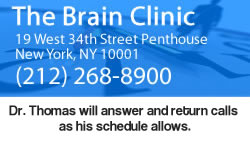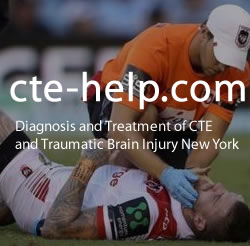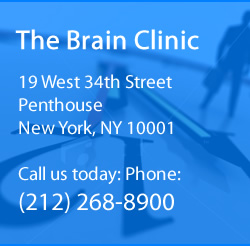
Overview Agenesis of the corpus callosum (AgCC) is a congenital disorder characterized by incomplete development of the white matter which connects the two brain hemispheres, called the corpus callosum. Often diagnosed in the early years, the clinical presentation of AgCC varies widely and encompasses both cognitive and behavioral symptoms. AgCC may be caused by genetic […]

Depression and dementia may both present with cognitive dysfunction (e.g., memory loss and slowed information processing speed) and emotional distress; therefore, it may be difficult for the patient and family members to distinguish between the two. A clinician can utilize a detailed clinical interview and neuropsychological assessment to delineate these processes. For example, individuals suffering […]

Traumatic brain injury (TBI) has been identified as important risk factor contributing to the later development of dementia. Currently, it is hypothesized that 5-15% of dementia cases are preceded by the occurrence of a TBI (1). Research on the neurological link between TBI and dementia is relatively new, although chronic traumatic encephalopathy (CTE) may be […]

Chronic traumatic encephalopathy (CTE) is a neurodegenerative disorder caused by recurrent mild traumatic brain injuries (TBI), which are commonly a result of sports injuries. Given the popularity of contact sports, research on the prevalence and development of CTE has grown in recent years. One study examining the brains of professional football players post-mortem has confirmed […]

10 Things to ask people who might have had a brain injury. Sometimes when professionals deal with mental health problems, there are symptoms which are perplexing, such as unexplained memory problems, word finding difficulties, being suddenly irritable— all of which are out of character either in with respect to therapist view or the patient. This […]

Overview Obsessive-Compulsive Disorder (OCD) is one of the most debilitating anxiety disorders. It is marked by the presence of obsessions (recurrent, intrusive thoughts) and/or compulsions (ritualistic behavior to reduce anxiety). Besides psychological and behavioral symptoms, individuals with OCD may experience cognitive problems, which may be explained by brain dysfunction. OCD is typically treated with medications […]

Bipolar disorder (formerly known as manic-depressive disorder) is a mood disorder characterized by fluctuations between intense mood states (mania and depression or “highs” and “lows”). In addition to mood symptoms, bipolar disorder is associated with cognitive dysfunction in attention, processing speed, executive functions, and memory. These deficits may be related to structural and functional changes […]
Neurofeedback for ADHD. A new treatment has been emerging in the last several decades for Attention Deficit Disorder and other mild brain-behavior problems —biofeedback of your brain waves. This is Neurofeedback, and the latest term is Neurotherapy. This method of treatment has been shown to be effective for a wide range of disorders besides Attention […]

Neurofeedback for ADD/ADHD I am sometimes asked if there is research supporting neurofeedback treatment for attention deficit disorder. The list on the following pages was taken from the professional neurofeedback organization at www.isnr.org. If you know of additions or corrections to this list, please e mail me. Dr. Larry Thomas, nurosvcs@aol.com. __________________ Albert, AO, […]

LD #1. One interesting fact about people with a learning disability (LD) as they grow into adulthood is that their learning disability appears to get worse. This is because as learning disabled people and non-learning disabled (“normal”) people develop, the cognitive abilities of person with a LD do not develop as well as the normal […]







